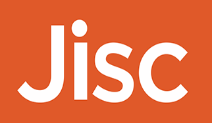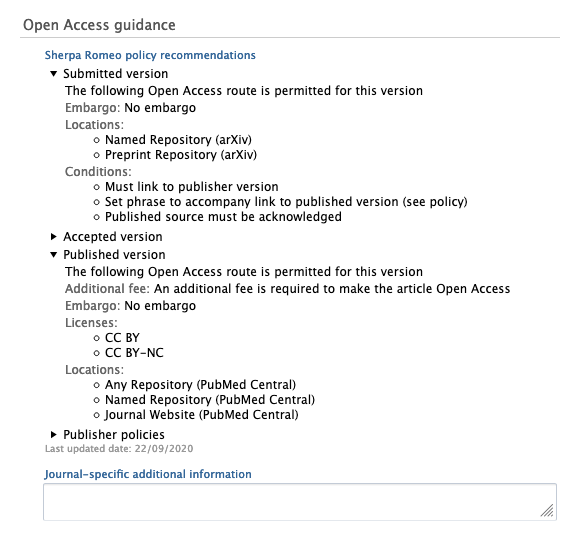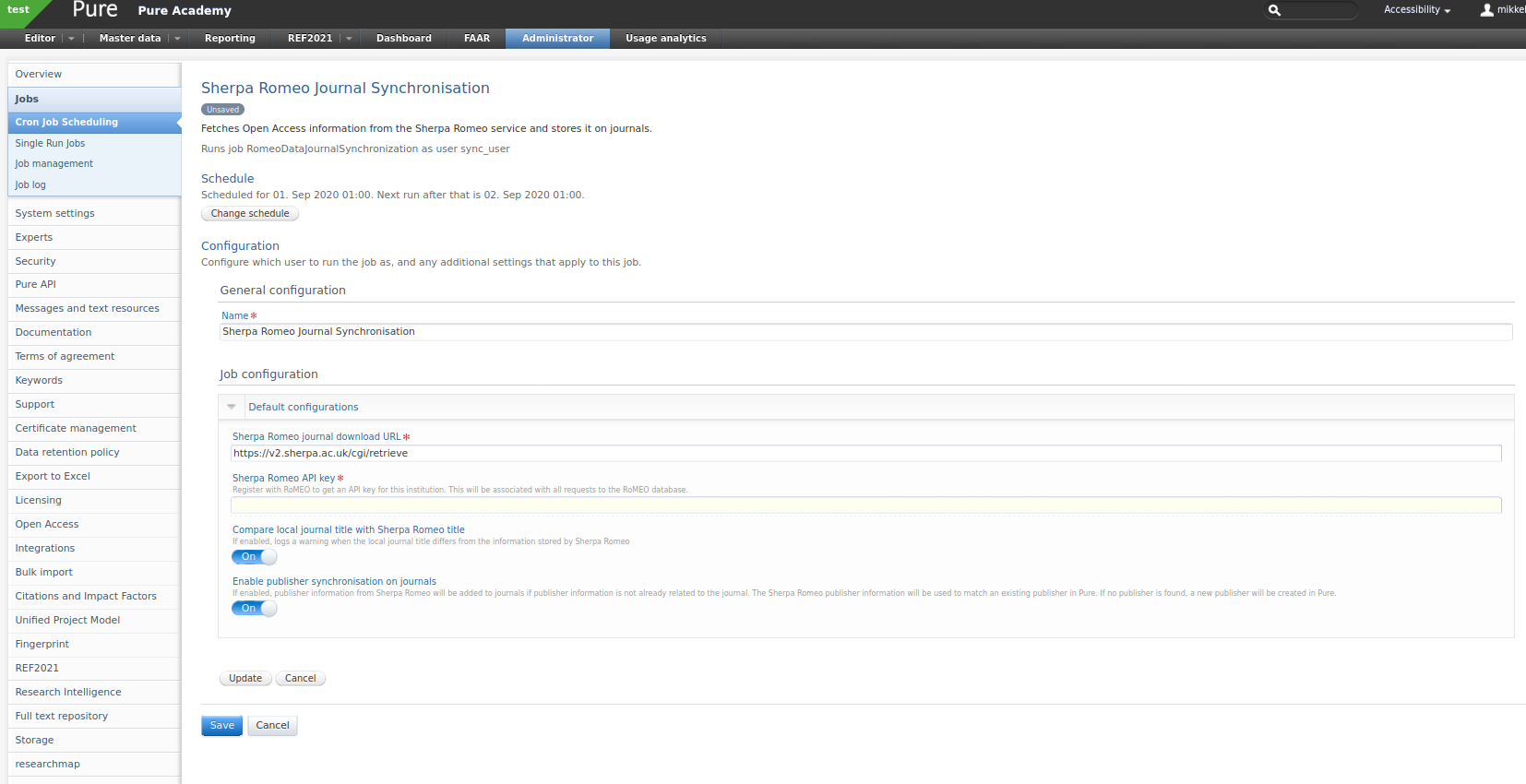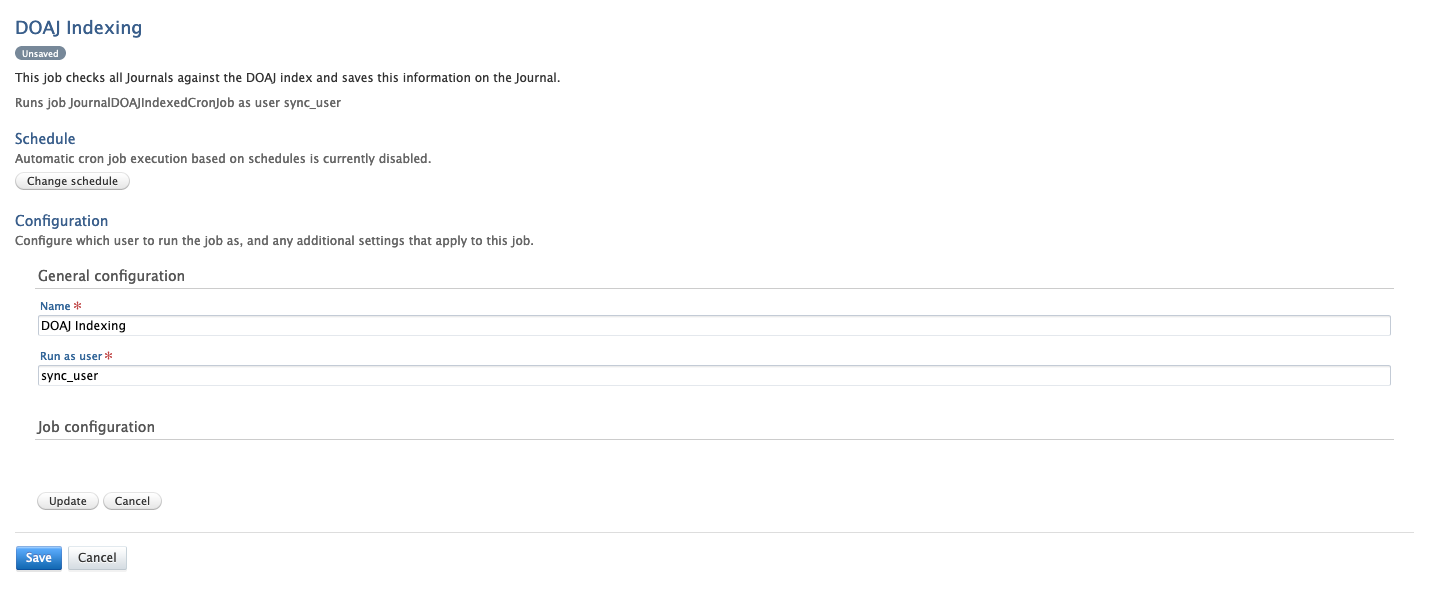How Can We Help?
OA-relevant import sourcesOA-relevant import sources
High quality data gives you the ability to answer your research and research administration questions easily, efficiently and reliably. In order for this to be possible, you need to be able to trust the data. In Pure we believe in the 5 Cs of data quality, meaning that data should be Correct, Complete, Current, Compliant, and Connected. To make sure that your Institution's data is complete we are continuously integrating new import sources with Pure. These range in scope and geographical relevance, such that we can provide Pure customers with a complete coverage of their Institution's data. To make sure your data is current, a number of sources are also included in our "Automatic Updates" workflow, meaning that existing content in Pure is automatically enriched with new information when there is new data available at the source.
Pure has integrations with a number of import sources, ranging in subject category and covering different content types. In this section a list and description of the Open Access import sources currently connected to Pure is given. These include Open Access databases, pre-print servers, and dataset repositories.
Article-level Sources
Article-level Sources
General information regarding mapping of data from the individual sources can be found here.
Pure has integrations with a number of Open Access databases and preprint servers.
Integrated Open Access sources include:
Import source |
Description |
Implemented in Pure |
Available for automatic updates |
Logo |
|---|---|---|---|---|
| Unpaywall |
Unpaywall (https://unpaywall.org/) is an Open Access database harvesting content from more than 25,000 Gold OA journals, Hybrid journals, institutional repositories, and disciplinary repositories (list of sources attached). This integration not only expands the range of available import data sources with an OA database indexing more than 25 million publications, but also provides researchers access to the best available online version of a record. |
5.19 | YES | 
|
| CORE |
CORE (https://core.ac.uk/) is an aggregator of OA repositories, harvesting research papers from data providers from all over the world including institutional and subject repositories, open access and hybrid journal publishers. It contains 186,648,638 open access articles, from thousands and over tens of thousands of journals, collected from 9,980 data providers around the world. Full list of data providers can be found here: https://core.ac.uk/data/providers/. CORE will supply data for the UK REF 2021 Open Access Policy Audit to Research England. |
5.19 | NO |  |
| DBLP | The DBLP computer science bibliography (http://dblp.uni-trier.de/) is a large database (~5 million publications) providing open bibliographic information on major computer science journals and proceedings. Data is openly availabe at http://dblp.uni-trier.de/db/copyright.html. |
5.18 | NO |  |
| Jisc Publication Router |
The Jisc Publications Router provides a way for Pure customers to receive notifications from publishers whenever a publication with their affiliation has been added or updated. By bypassing indexing services such as Scopus or WoS, the Jisc router speeds up the import of relevant content into Pure. In addition to reducing your Institution's administrative effort and maximising discovery and distribution of content, The Jisc Publications Router helps institutions comply cost-effectively with the Open Access policies of research funding bodies, currently valuable to UK customers considering the upcoming REF. |
5.18 |  |
|
| SciELO | SciELO is a bibliographic database, digital library, and cooperative electronic publishing model of Open Access journals. SciELO was created to meet the scientific communication needs of developing countries and provides an efficient way to increase visibility and access to scientific literature. | updated 5.18 | NO |  |
Preprint servers collect the pre-published (best available) full versions of articles, increasing researcher's accessibility to research output. We currently have integrations with pre-print servers covering scientific literature in the Physical Sciences, Social Sciences and Biology.
Integrated Preprint Servers include:
Import source |
Description |
Implemented in Pure |
Available for automatic updates |
Logo |
|---|---|---|---|---|
| SSRN | SSRN is a repository for both preprints and international journal devoted to the rapid dissemination of scholarly research. It contains more than 1.5 million abstracts and full-text papers in the Social Sciences, Humanities and more. | 5.11 | NO |  |
| arXiv | arXiv is an OA repository for preprints. Papers are approved for posting after moderation but are not peer-reviewed. It covers the fields of Mathematics, Physics, Astronomy, Electrical Engineering, Computer Science and Economics and contains over 1,750,950 records. |

|
||
| bioRxiv | bioRxiv (https://www.biorxiv.org/about-biorxiv) is a free online archive and distribution service for unpublished preprints in the Biological Sciences. It contains over 80,000 records. | 5.19 | NO |  |
Journal-level Sources
Journal-level Sources
Sherpa Romeo
Sherpa Romeo is a free service by JISC that aggregates and presents publisher and journal Open Access policies around the world. Registered publishers and journals are reviewed so that comprehensive information on self-archiving permissions and on the rights to authors can be provided for each journal. Sherpa Romeo aims to keep institutions updated on Open Access policies that are constantly changing and are different for different countries and institutions.
Accounting for an increased complexity in Open Access policies, Sherpa Romeo has recently transitioned from representing article sharing options with colors to adopting a more detailed classification scheme. The new format of Sherpa Romeo recommendations provides more detailed information for each publication state of an article, i.e. Submitted, Accepted, Published. Details include prerequisites, embargo periods, locations of the document, conditions, and more.
Through the integration with Sherpa Romeo, up-to-date data on publisher policies is imported to Pure and journal records are updated. The Open Access policies are visible, and recommendations are listed for different publication states.

It is also possible to apply filters in Pure based on Sherpa Romeo policy recommendations, Open Access restrictions, and Open Access routes, making it easier to find and monitor Open Access content and compliance to Open Access policies.

Setting up Sherpa Romeo Job
Sherpa Romeo now requires customers to generate their own key, which can be done by registering with SR via https://v2.sherpa.ac.uk/cgi/register.
Once you have an API key you will need to configure the SR job in Pure. The job, Sherpa Romeo Journal Synchronisation, can be found in Administrator > Jobs > Cron job scheduling:

When you have found the job you will need to configure it accordingly.

The following configuration values are available:
-
Sherpa Romeo journal download URL
- The URL used to retrieve data from Sherpa Romeo.
Sherpa Romeo API key
- Your institution's individual API key. You need to register for one (see above).
-
Compare local journal title with Sherpa Romeo title
- The job will match journals on ISSN. Enable this if you want the job to warn you when it detects a difference between the title in Pure and the one in Sherpa Romeo.
-
Enable publisher synchronisation on journals
- If enabled, publisher information from Sherpa Romeo will be added to journals if it is not already present. The Sherpa Romeo publisher information will be used to match an existing publisher in Pure. If no publisher is found, a new publisher will be created in Pure.
Directory of Open Access Journals (DOAJ)
The Directory of Open Access Journals (DOAJ) is an online directory that indexes and provides access to more than 15,000 Open Access peer-reviewed journals to increase their visibility, accessibility, reputation, usage and impact.
In Pure, the Journal data model contains information on whether a journal is indexed in DOAJ, enabling users to identify outputs published in Journals indexed in DOAJ. This DOAJ information appears in the Journal editor, in addition to renders of the Journal (on, for example, the Research Output and Activity editors).
In the Reporting module, it is possible to filter, group, and report on Journals indexed in DOAJ (both when reporting on Journals themselves, or as a related content type).
Setting up Directory of Open Access Journals (DOAJ) Job
No API key is needed to set up the connection to DOAJ. The job can be found in Administrator > Jobs > Cron job scheduling:

No configuration setup is required. Simply save and run the job.

Published at December 01, 2023
